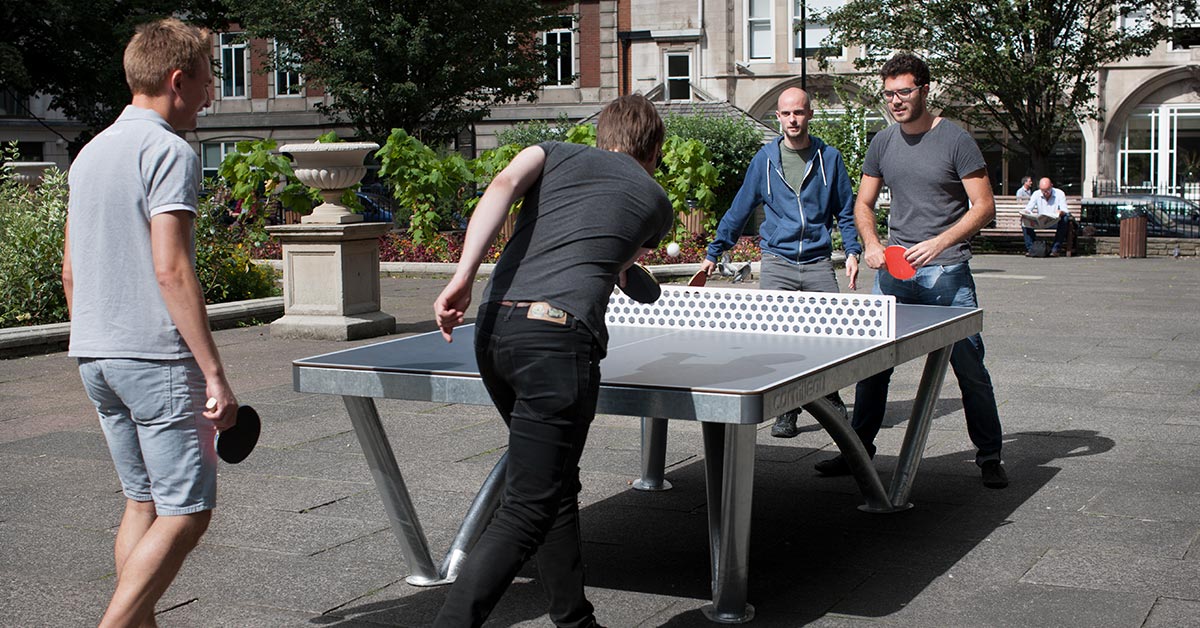Your brain needs stimulation to remain healthy throughout your life – much like a muscle needs exercise. But what’s important? And what role does hearing play?
In your childhood, your brain was constantly stimulated with new sounds, impressions, and experiences. They helped it to grow and thrive.
Now in adult life, your brain still requires regular stimulation so it can keep sharp and healthy. In fact, without stimulation and exercise, the brain can gradually lose its abilities.i
Luckily, stimulating the brain is easy and very enjoyable! Keeping your brain healthy basically means living an active and engaged life.
1. Stimulate the brain with activities
It is a good idea to stay active throughout life – from your youth and beyond your retirement. Good hearing can help with these.

Brain stimulation comes from all sorts of activities. You could try quieter ones like mental puzzles and challenges – Sudoku or crosswords; chess or bridge.
Or you could try more energetic activities. These also stimulate your brain in all sorts of ways, whether it’s the rapid intuition needed for tennis, or the more sedate calculations on the golf course.
Equally important are the conversations and companionship that accompany sports where you interact with other people.
In fact, socializing is also very important for stimulating the brain. Which leads us to …
2. Socialize, socialize, socialize

We all need social relationships to remain healthy throughout our lives. And as we get older, they help to keep our brains healthy, as growing evidence shows.
One study has shown that meeting people and talking to them helps people to retain cognitive function as they get older.
Another study has shown that older people who are more social experience less cognitive decline in old age.
**********
Hearing loss makes socializing harder
This is because it takes you more effort to figure out what’s going on. Then your brain has to fill in the gaps in the sound information by guessing. This makes you more tired, which can make people less likely to socialize.ii
Which leads us on to the last of our three tips for keeping your brain healthy …
**********
3. Make sure you are hearing well
We know that hearing well is essential to keep your brain fit.iii So getting your hearing checked is one of the most important things you can do to safeguard your brain’s health.
How can a hearing problem become a life problem?
A hearing care professional or audiologist will give you a simple and easy hearing test. If they find you have a hearing loss, they can give you advice about treatment. Critically, they can fit you with brain-friendly hearing aids and then set them up to support your brain in the best way possible.
Brain-friendly hearing aids will give your brain more sound, and critically, they’ll give it more quality sound.
Because, thanks to new researchiv, we now know that the brain needs access to all sounds – not just speech – in order to work in a natural way.
Why it’s so important your hearing aids are brain-friendly
In fact, we know that treating hearing loss well potentially reduces the risk of dementia more than any other action – including quitting smoking and exercising more.v
This means it’s vital that you can hear well, and if you have hearing loss, get it treated with brain-friendly hearing aids.

Find an audiologist near me
-----------------------------------
i Swaab DF. Brain aging and Alzheimer’s disease, “Wear and tear” versus “Use it or lose it.” Neurobiology of Aging. 1991;12(4):317-324. doi:10.1016/0197-4580(91)90008-8
ii Amieva, H., Ouvrard, C., Meillon, C., Rullier, L., & Dartigues, J. F. (2018). Death, depression, disability, and dementia associated with self-reported hearing problems: a 25-year
study. The Journals of Gerontology: Series A, 73(10), 1383-1389.
iii Livingston G, Sommerlad A, Orgeta V, et al. Dementia prevention, intervention, and care. The Lancet. 2017;390(10113):2673-2734. doi:10.1016/S0140-6736(17)31363-6
iv O’Sullivan J, Herrero J, Smith E, et al. Hierarchical Encoding of Attended Auditory Objects in Multi-talker Speech Perception. Neuron. 2019;104(6):1195-1209.e3. doi:10.1016/j.neuron.2019.09.007
v Livingston G, Sommerlad A, Orgeta V, et al. Dementia prevention, intervention, and care. The Lancet. 2017;390(10113):2673-2734. doi:10.1016/S0140-6736(17)31363-6